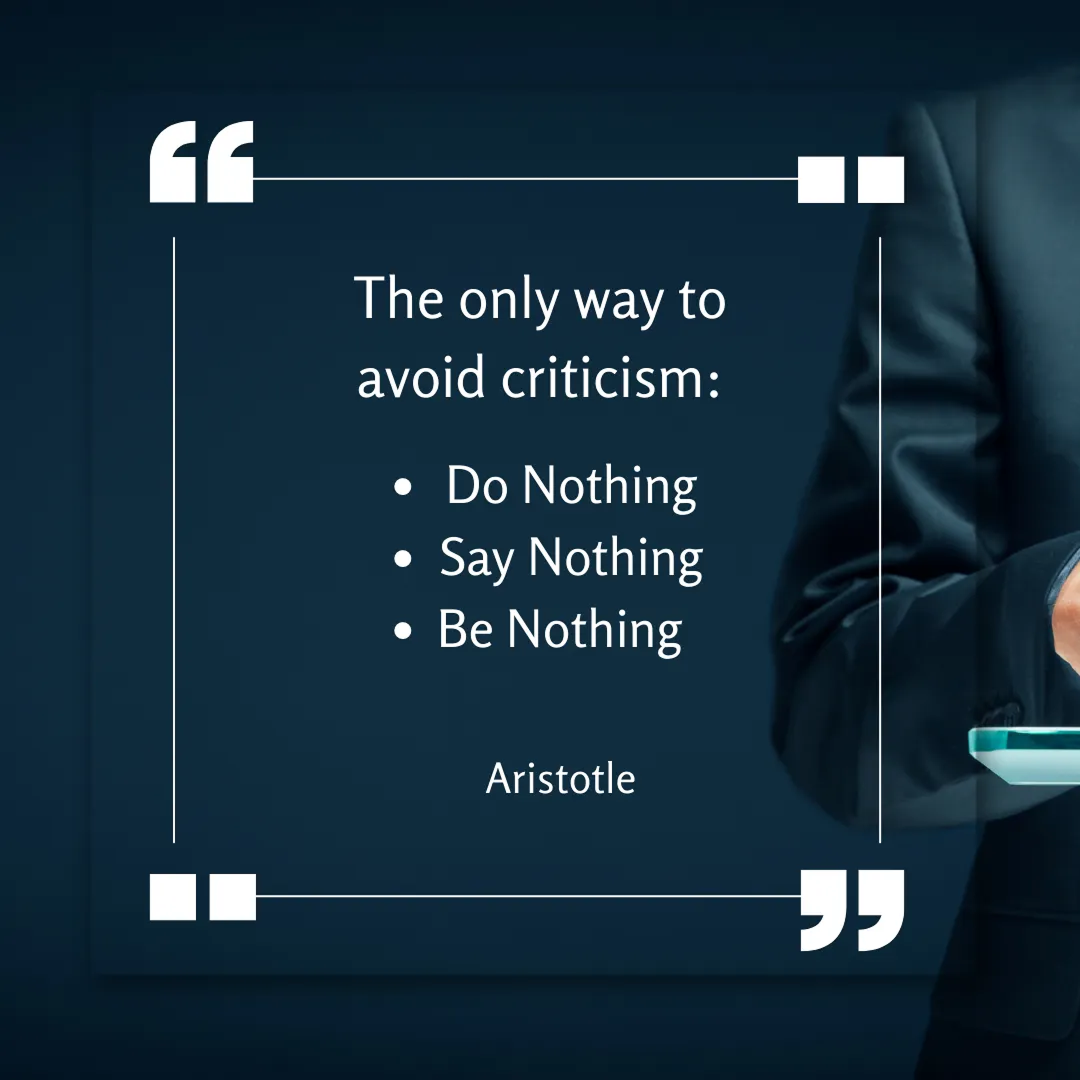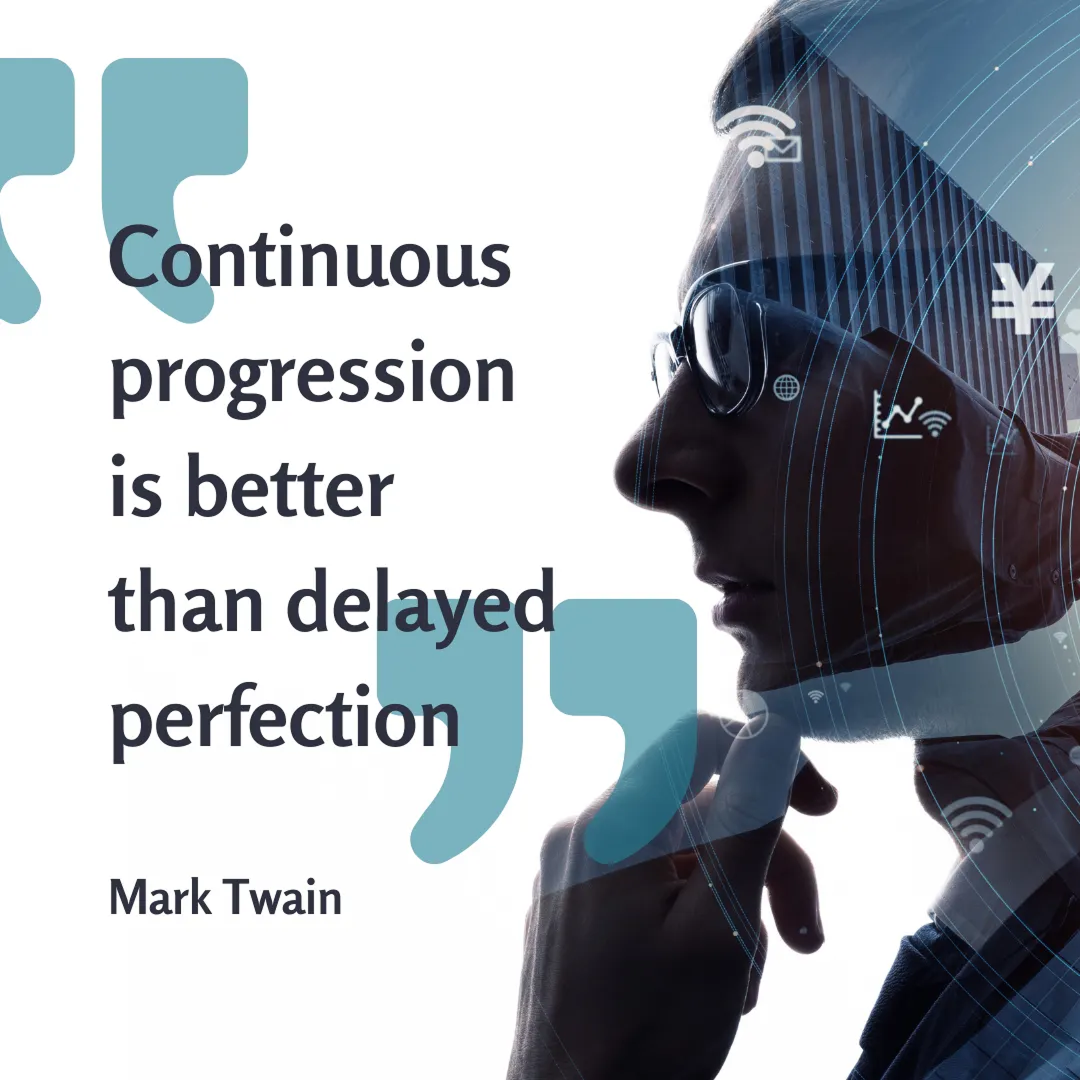Differentiating Between Criticism and Constructive Feedback in the Workplace

During my professional journey, I've always strived to improve my skills and expertise. I've attended conferences, taken courses, and sought out mentors to learn from their experiences. One of the best ways I've found to grow professionally is through feedback. Feedback helps me see my blind spots, identify my strengths, and learn from my mistakes. So, naturally, I've always been eager to get feedback from anyone who's willing to give it. I've asked for feedback on my presentations, reports, and projects from colleagues, bosses, and clients. However, I soon found myself asking a troubling question: was I really getting feedback or just looking to please others?
It's not just about me, though. It's also about the people who give feedback or criticism. I realized that not everyone is qualified to give feedback on my work, and not everyone has my best interests at heart. Some people might give feedback that is biased, uninformed, or just plain unhelpful. Others might have hidden agendas, like wanting to undermine my work or boost their own ego. And some might give feedback that is well-intentioned but not very useful, like generic compliments or vague criticism.

That's when I learned the art of discerning criticism. I learned that feedback is not just about getting praise or criticism; it's about getting the right kind of feedback from the right people. I learned that I should only take feedback from people I respect and people who inspire me. People who have the expertise, experience, and empathy to give me constructive criticism that will help me grow professionally. And that's what I want to share with you today: the importance of discerning criticism, and why you should only take feedback from people you respect.
Why Discernment is Key: Learning to Filter Out Unhelpful Criticism
Managing criticism can be tough, but it's an essential skill to have in any professional setting. Even some of the most brilliant people can struggle with criticism, especially when it comes from toxic or bullying managers. The impact of negative feedback can be especially damaging to one's self-esteem and confidence.
However, it's important to remember that not all criticism is created equal. One helpful rule of thumb is to never take criticism from people you wouldn't take advice from. If someone is offering you criticism but you don't respect their opinion or expertise, it may not be worth taking their feedback to heart.
In fact, toxic feedback can be especially harmful to your professional growth. Bullying managers, for example, can often use criticism as a means of control or manipulation, rather than as a tool for genuine feedback. This can have a serious impact on your self-esteem and confidence, and can even lead to burnout or other mental health issues.
The Resilience Mindset: Why Every Professional Needs to Develop a Thick Skin
Developing a resilient mindset can be a powerful tool for managing criticism. This means learning to take feedback in stride, without letting it impact your sense of self-worth or professional identity. It also means being discerning about whose feedback you take seriously and being willing to filter out unhelpful criticism.

Even some of the world's top entrepreneurs have struggled with criticism. Steve Jobs, for example, was famously ousted from Apple in the mid-1980s after clashing with other executives. However, Jobs later said that the experience ultimately made him stronger and more resilient, and allowed him to go on to achieve even greater success when he returned to Apple years later. Similarly, Jeff Bezos has faced criticism and skepticism throughout his career but has used this feedback as motivation to drive his vision forward.
Here are a few tips to keep in mind:
- Listen with an open mind: Even if you ultimately decide to discount someone's feedback, it's important to at least give them a fair hearing. Try to approach criticism with an open mind and a willingness to learn.
- Look for patterns: If you're receiving the same criticism from multiple people, it may be a sign that there's something you need to work on. Pay attention to any common themes or areas of improvement that are emerging.
- Seek out constructive criticism: Not all criticism is created equal. Try to solicit feedback from people whom you respect and trust, and who can offer specific suggestions for improvement.
On the other side, if you're someone who gives feedback or criticism to others, I urge you to consider the importance of discerning criticism as well. Think about whether you're qualified to give feedback on someone's work, whether you have their best interests at heart, and whether your feedback is truly helpful. If not, it might be better to refrain from giving feedback altogether. But if you do have something valuable to offer, be honest, specific, and respectful in your feedback. Remember that your goal is to help the person grow, not tear them down. And if you're not sure whether your feedback is valuable or not, ask for their feedback on your feedback. It's a two-way street, after all.
In conclusion
The art of discerning criticism is a vital skill for anyone who wants to grow professionally. It's important to seek out feedback from people we respect and trust and to be mindful of the feedback we give to others.
But what do you think? Have you had similar experiences in seeking feedback, and have you found it challenging to discern helpful feedback from unhelpful criticism? Or have you developed strategies for managing feedback that has helped you grow in your professional life? I'd love to hear from you in the comment!
Call to Action
If you're looking for a safe and supportive community to help you grow and develop, consider joining my Coaching Walkshop sessions: REBOOST. These types of communities provide a supportive environment where you can share your challenges and receive constructive feedback and tips for self-management and growth. Joining a coaching walkshop can help you develop new skills, build your confidence, and connect with like-minded people. check out details and join the next session, here.